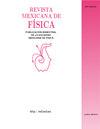Analysis of factors that affect radiation dose level during interventional cardiology procedures using logistic regression
IF 1.2
4区 物理与天体物理
Q3 PHYSICS, MULTIDISCIPLINARY
引用次数: 0
Abstract
Interventional cardiology procedures (ICP) are considered some of the main medical procedures in which patients are exposed to high doses of radiation. The aim of this study was to examine how to control the level of radiation exposure and to analyse and study the factors affecting the increase in radiation exposure from the specified level using a regression method. The results model correctly predicted that in 80.0%, 90.5%, and 95.2% of the cases, there were routine dose area product (DAP) levels, and in 64.3%, 33.3%, and 77.8% of cases, there were high levels of DAP, giving an overall percentage, correct prediction rate of 72.45%, 73.35%, and 90.0%, for coronary angiography (CA), percutaneous coronary intervention (PCI), and combined CA with PCI (CA/PCI), respectively. All the factors studied in this research, namely Kv, mA, Fluoroscopy Time (FT) and Body Mass Index (BMI), have a significant relationship with the DAP level. We concluded that regression analysis is a reliable method for evaluating the user protocol in a center or hospital and identifying variables that have an effect on the dose area product level in interventional cardiology.应用logistic回归分析介入心脏病学过程中影响辐射剂量水平的因素
介入心脏病学程序(ICP)被认为是患者暴露于高剂量辐射的一些主要医疗程序。本研究的目的是研究如何控制辐射暴露水平,并使用回归方法分析和研究影响特定水平辐射暴露增加的因素。结果模型正确预测了80.0%、90.5%和95.2%的病例存在常规剂量-面积乘积(DAP)水平,64.3%、33.3%和77.8%的病例存在高水平的DAP,对冠状动脉造影(CA)、经皮冠状动脉介入治疗(PCI)和CA联合PCI(CA/PCI)的总体百分比、正确预测率分别为72.45%、73.35%和90.0%,分别地本研究中研究的所有因素,即Kv、mA、荧光透视时间(FT)和体重指数(BMI),都与DAP水平有显著关系。我们得出的结论是,回归分析是一种可靠的方法,用于评估中心或医院的用户协议,并识别对介入心脏病学中剂量-面积乘积水平有影响的变量。
本文章由计算机程序翻译,如有差异,请以英文原文为准。
求助全文
约1分钟内获得全文
求助全文
来源期刊

Revista Mexicana De Fisica
物理-物理:综合
CiteScore
2.20
自引率
11.80%
发文量
87
审稿时长
4-8 weeks
期刊介绍:
Durante los últimos años, los responsables de la Revista Mexicana de Física, la Revista Mexicana de Física E y la Revista Mexicana de Física S, hemos realizado esfuerzos para fortalecer la presencia de estas publicaciones en nuestra página Web ( http://rmf.smf.mx).
 求助内容:
求助内容: 应助结果提醒方式:
应助结果提醒方式:


